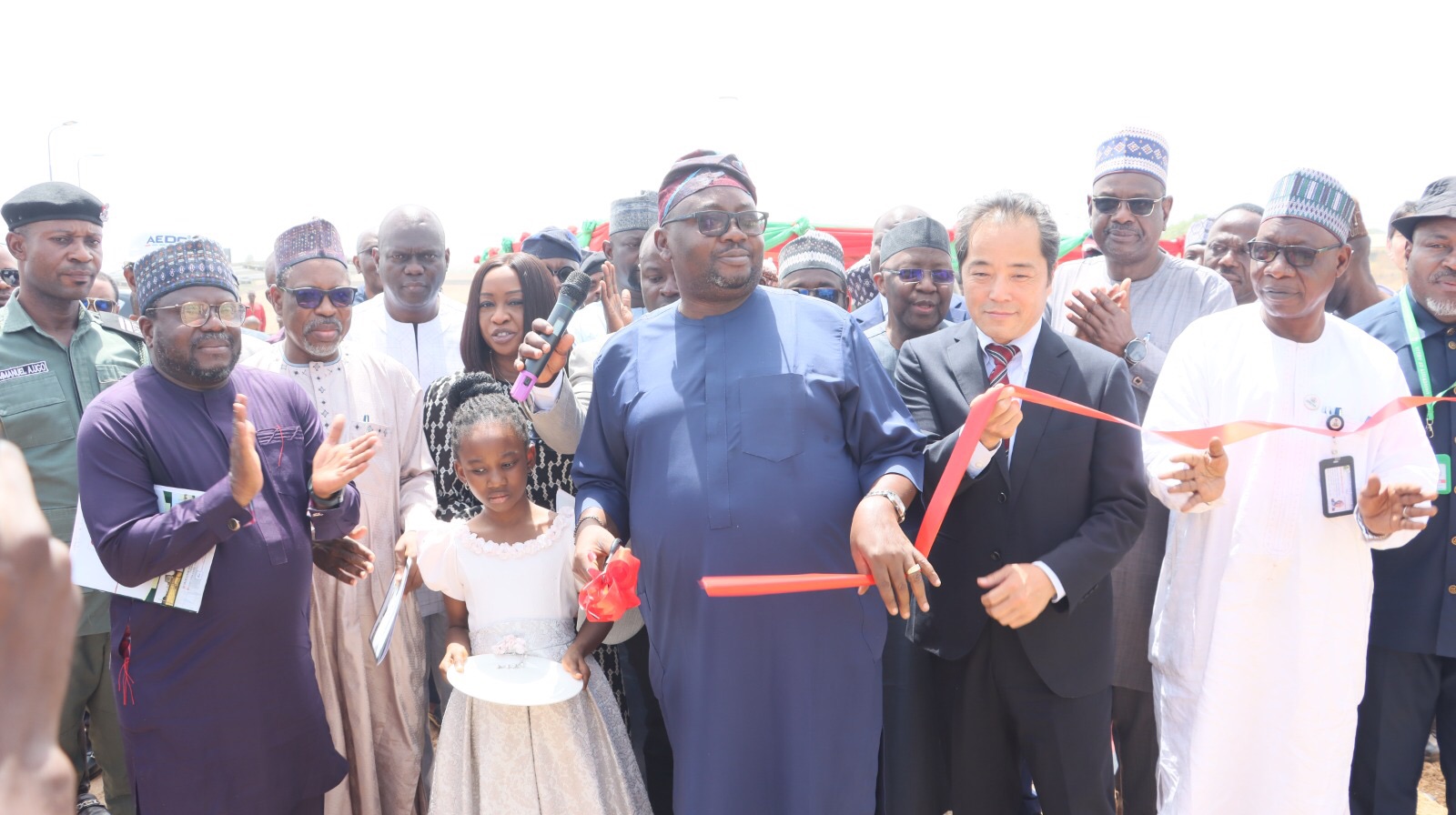The Minister of Power, Chief Adebayo Adelabu has emphasized the need for the development of local capacities for the sustainability of the power sector.
The Minister spoke at the commissioning of training equipment and simulation infrastructure for capacity development in power distribution, according to a statement on Wednesday by Adelabu’s media aide, Mr. Bolaji Tunji
According to the statement, the equipment and infrastructure were
built by the National Power Training Institute of Nigeria (NAPTIN) with support of the Japan International Cooperation Agency (JICA).
They are located in Idu industrial area of Abuja.
Adelabu said Nigeria must focus on building local competencies, so as to manage the nation’s foreign exchange and develop human capacities that can manage the resources.
He said: “Today’s event marks more than just the commissioning of new equipment; it signifies the beginning of a new chapter for Nigeria’s power industry.
“The introduction of a state-of-the-art training equipment and simulation technology is a testament to our commitment to building a sustainable and resilient energy sector in Nigeria, driven by increased local capacity and competence. This is in line with the Renewed Hope Agenda of Mr. President.
“The present administration in Nigeria, led by His Excellency, President Bola Ahmed Tinubu recognizes that energy is not merely a commodity; it is the backbone of economic growth and job creation.
“To ensure the growth and sustainability of the sector, the Federal Government of Nigeria continues to implement a multi-pronged approach spanning across policy development and strategic implementation plans, ongoing national infrastructure development programmes to expedite infrastructure expansion, leveraging bilateral funding to de-risk investment, sector commercialization, and strategic partnership with the investment community and development partners to address bottlenecks across the Nigerian Electricity Supply Industry (NESI) value chain, setting the sector on a path toward bankability and long-term sustainability.
What we are doing here today is part of the effort to realise that goal.”./
The minister also emphasized the need for the power sector to restore the confidence of the consumers, particularly the industrial sector on the reliability of the grid, which is cheaper than the captive, embedded, and the renewable power supply.
Adelabu said: “We have provided access to over 150 million Nigerians through the grid and renewable supply to the rural populace but we still have over 80 million Nigerians that we still provide power to and this formed one of our discussions at the just concluded meeting of African heads of States in Dar es Salam in Tanzania, which was organized by the World Bank and the African Development (AfDB), where it was agreed that 300 million Africans must be provided with electricity by the year 2030.
“But the question is; why are people and particularly, industries focusing on captive and embedded power supply? The answer is that our grid is still work in progress that we are building to ensure its reliability, even though these alternative sources are more expensive. We must begin to do something about this and bring our industries back to our grid.”
He also called on stakeholders in the sectors; generation, transmission and the distribution companies to take advantage of the opportunity offered by the new facility to get their staff trained.
“I want to emphasize that there is need for intense training of manpower in the sector. Electricity Company of Nigeria (ECN), the National Electricity Power Authority (NEPA) and the Power Holding Company (PHCN) all realised this.
These agencies, even though they had their short comings and we have found ourselves where we are today, but they took training very seriously. They focused on training and what we are witnessing here is one of their investments.
“About 80 percent of the workforce came from them. Generation, transmission and distribution loses can be drastically reduced through constant training and retraining of the workforce in these modern facilities.
“With access to modern simulation tool sets, we believe our workforce will engage in hands-on, practical learning experiences that mirror real-world scenarios. This will undoubtedly enhance local competency and confidence in managing complex power systems and reacting effectively to any challenges that may arise.”
He added: “It gives me immense pleasure to stand before you today as we gather to mark the commissioning of new training equipment and simulation infrastructure developed through the collaboration between the National Power Training Institute of Nigeria (NAPTIN) and the Japan International Cooperation Agency (JICA).
“This is a significant milestone in our continuous journey toward enhancing capacity and capability development in the Nigeria’s power sector.”
The minister re-iterated the importance of the training facilities.
He said: “Furthermore, this project underscores the importance of international cooperation and knowledge exchange with the government of Nigeria and the development partners. This collaboration with JICA not only facilitates access to equipment and technologies but also presents an opportunity for cultural and intellectual exchanges that benefit both countries.
“This partnership stands as a shining example of how nations can continue to work together towards common objectives of creating a sustainable and efficient energy future while fostering global goodwill and understanding.
“I am particularly excited about the prospect that this new infrastructure will greatly enhance NAPTIN’s ability to deliver world-class training programs. It positions NAPTIN as the leading institution for power training in West Africa, ready to attract and nurture talent not just from Nigeria, but across the continent.
“In closing, I want to acknowledge and commend the hard work and dedication of all those involved in this project the management and staff of NAPTIN, our technical experts, and all partners who have been instrumental in turning this vision into reality. This facility not only fosters knowledge exchange but also reinforces the shared vision of sustainable energy growth and economic prosperity.
“The Ministry of Power and its agencies remain committed to working with JICA and other development partners to further advance technical training, infrastructure development and employment generation in the sector. Together, let us harness these new tools and resources to push the boundaries of what is possible, drive innovation, and illuminate the path to a prosperous and electrified Nigeria. As I close, let me say this that these are our joint assets. Let us protect them and say no to vandalism.”




